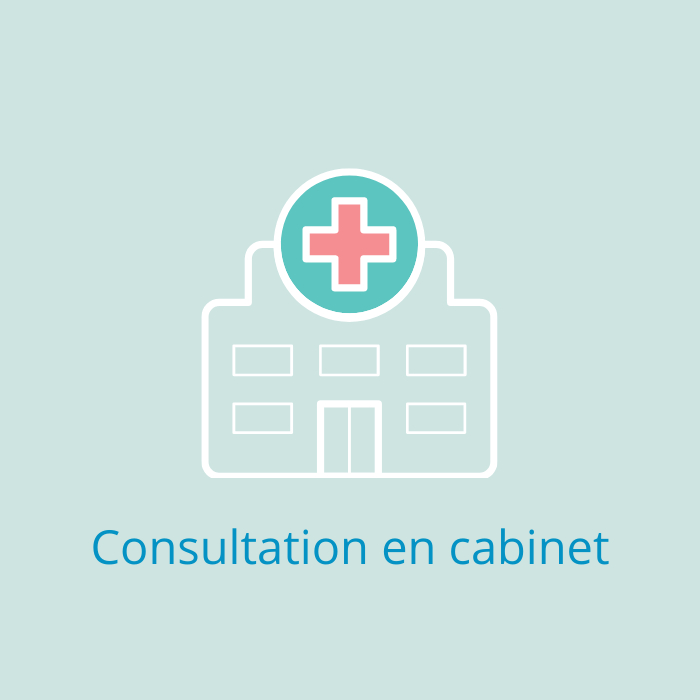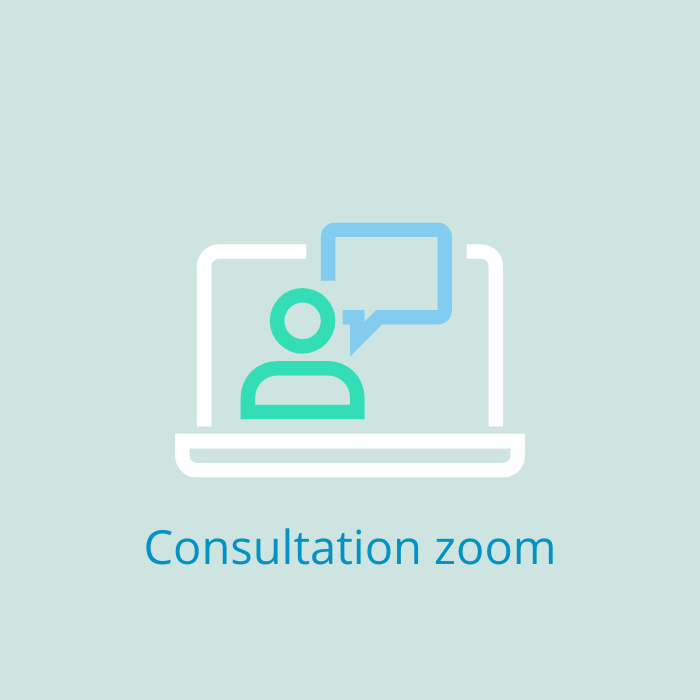Cabinet CSMQ
here For ongoing support
Please note that we give receipts
for insurance and for taxes
You deserve peace of mind!
Whether you are in a professional or romantic impasse, have difficulty managing stress or simply have old wounds to deal with, psychosocial follow-up can help you overcome these obstacles in a healthy way. Don’t worry, our psychosocial counsellors will accompany you and let you evolve at YOUR pace.

Psychologist
The psychologist is an expert in behavior, emotions and mental health. It intervenes with people who are experiencing distress or psychological difficulties.

Sexologist
Sexology is the study of human sexuality. Thus, the helping relationship in sexology can help find solutions and support the person in their daily life in relation to relational, sexual or personal difficulties. The sexologist sexologist seeks to identify the psychological or physiological mechanisms that may contribute to the difficulty. The sexologist first suggests one or two meetings needs assessment and goal setting. The following meetings begin the process in a helping relationship which will be mainly through reflections, advice and exercises to be practiced at home.

Helping relationship therapist
The therapist offers psychological support to promote personal development and fulfillment. Whether it’s overcoming fears, managing stress, managing a career change, or improving confidence and self-esteem, the therapist will guide you on your journey.

Social worker
The Social Worker provides counselling services to promote personal development and achievement. Whether it’s overcoming phobias, managing stress, dealing with a divorce, or improving confidence and self-esteem, the social worker will guide you on your journey. Her interventions allow her to support the client in his or her journey towards wellness. They allow a better knowledge of oneself, an understanding of one’s functioning in relation to oneself and one’s surroundings.






We are also a participant in the IVAC program to assist victims of crime
Types of consultations
Corporate consulting
Consultation at home
Clinic consultation
Telephone consultation
Video consultation
Consultation to seniors
Relation d'aide primaire
- Déprime générale
- Choc post-traumatique
- Anxiété
- Dépression et/ou "burn out"
Relation d'aide primaire
- Déprime générale
- Choc post-traumatique
- Anxiété
- Dépression et/ou "burn out"
Consultation conjuguale
- Outil de l'approche systémique
- Outil de l'approche psychanalytique
- Consultation cognitivo-comportementale et interpersonnelle
Consultation conjuguale
- Outil de l'approche systémique
- Outil de l'approche psychanalytique
- Consultation cognitivo-comportementale et interpersonnelle
Entrevue motivationnelle
- Confiance personnelle
- Confiance professionnelle
- Gestion des pensées
- Gestion des émotions
Entrevue motivationnelle
- Confiance personnelle
- Confiance professionnelle
- Gestion des pensées
- Gestion des émotions
Here are some definitions of different pathologies
Panic disorder
Symptoms of a panic attack:
-Fear of death.
-Fear of going crazy or losing control of oneself.
-Chest pain or discomfort.
-Feeling dizzy, unsteady or faint.
-Impression of suffocation.
-Hot flashes or chills.
-Nausea or abdominal pain.
-Paresthesias or tingling sensations.
-Palpitations or accelerated heart rate.
-Feeling of shortness of breath or choking.
-Sweats.
-Trembling.
Gambling, alcohol and drug addiction
The DSM-5 (Diagnostic and Statistical Manual of Mental Disorders), the reference work, no longer speaks of dependence or abuse but of “use disorder”. The disorder ranges from “mild” to “moderate” to “severe” depending on the number of symptoms experienced by the person.
While addiction is often associated with the use of psychoactive substances (alcohol, drugs, medication, tobacco and others), other forms of addiction can also be observed.
behavioral dependency:
-Gambling
-Sports activity
-Gender
-Technologies (cellular, social networks…)
-Consumption (compulsive purchases, accumulation of objects…)
-Power supply
-Emotional dependence
Personality disorders
Personality disorders are categorized into 3 groups :
Group A distant (psychotic disorders)
Paranoid personality disorder:
This personality disorder is characterized by paranoia and long-term distrust. Individuals with this disorder may be hypersensitive and look for the smallest thing as a potential threat.
Schizoid personality disorder:
This personality disorder is characterized by a lack of interest in social relationships. The individual has difficulty making contact with others and forming social bonds. For leisure and professional activities, the individual is rather independent and solitary; he shows no emotion and has a cold image towards others.
Schizotypal personality disorder:
This personality disorder is characterized by significant social anxiety. The individual has a need for social isolation. People with this disorder may feel uncomfortable in a relationship; they may even act strangely during a conversation, not respond or talk to themselves.
Group B impulsive (dramatic, emotional or erratic)
Antisocial personality disorder:
This personality disorder is characterized by an inability to conform to social norms. The individual tends to deceive for profit or pleasure. The affected person is really impulsive, irritable, and can even be aggressive; he or she has no regard for his or her own safety or that of others. Lack of remorse or empathy is predominant.
Borderline personality disorder (BPD):
This personality disorder is characterized by instability in interpersonal relationships. Relationships are particularly unstable and intense, easily leading to idealization or devaluation of the other. The individual has impulsive and aggressive reactions, eating and behavioral disorders, risky sexuality and addictive behaviors. Temporary psychotic episodes are possible, especially when the person is going through a personal crisis.
Histrionic person disorder:
This personality disorder is characterized by a general pattern of excessive emotional responses and attention seeking. The person with this disorder feels uncomfortable when he or she is not the center of attention. Seduction is her priority using her charm and inappropriate behaviors. If he fails to attract attention through seduction, he will pose as a victim and will not refrain from denigrating others in order to achieve his goal.
Narcissistic personality disorder:
This personality disorder is characterized by an excessive need to be admired, having a constant feeling of superiority. A lack of empathy may also be present. The belief of superiority makes the narcissist a person who needs to be admired unconditionally; he/she has a feeling that everything is due to him/her.
Group C delete (anxiety and fear disorders)
Avoidant Person Disorder:
This personality disorder is characterized by a feeling of maladjustment and a very strong sensitivity to negative situations. They are afraid of being rejected, criticized or embarrassed. People with this disorder feel inadequate. They manage these feelings by avoiding any contact or situation in which they might be viewed negatively.
Disorder of the dependent person:
This personality disorder is characterized by an increased dependence on other individuals. People with this disorder will have difficulty trusting themselves and feel that they are unable to take care of themselves; they use submission to try to get the other person to take care of them.
Obsessive-compulsive disorder:
This personality disorder is characterized by an uncommon preoccupation with order, perfectionism, mental and interpersonal control. People with this disorder need to be in control and do things in a specific way to satisfy their perfectionism.
Social anxiety
Symptoms of social anxiety:
This anxiety is often accompanied by one or more symptoms.
Generalized Anxiety
Everyone experiences anxiety at one time or another. Feeling a little anxious is perfectly normal; it protects us and can help us deal with a worrying or potentially dangerous situation. Anxiety is felt as a fear whose cause is difficult to specify. This feeling is accompanied by symptoms. It is natural to feel a certain level of anxiety on certain occasions, such as when you are going through a major life change like a wedding or a move. It’s also normal to feel anxious the night before an exam, when you’re going to a job interview, or during a sporting event. The anxiety is then linked to specific events and usually disappears as soon as life returns to normal. When anxiety becomes recurrent, it is important to consult a professional in order to avoid a possible worsening of the symptoms.
Here are some situations in which anxiety can be considered a problem:
-It does not go away even when the situation of concern returns to normal.
-It causes a significant level of distress.
-It is not related to any life event; it appears without any reason.
-It is a constant preoccupation of the person.
-It prevents one from functioning and acting properly at work, in society or in other areas of normal life.
Anxiety disorders
Bipolar disorder
Signs and symptoms:
An episode of great excitement or energy:
Episode of depression:
-Fatigue.
Psychotic disorders
Main forms of psychotic disorders:
– Schizophrenia: Schizophrenia affects thoughts, emotions, feelings and behaviors. The person affected has great difficulty living his or her life in a normal way . People with the disorder are no longer in reality and suffer from acute psychotic episodes. The symptoms of this chronic illness are severe and variable; the most common are delusions and hallucinations.
– Schizoaffective disorder: The person with schizophrenia has symptoms of schizophrenia and associated symptoms such as mood disorder and bipolar disorder.
Delusional disorder: Delusional disorder affects thoughts and ideas, such as having difficulty concentrating or following a conversation or believing that a celebrity or other person has fallen in love. Can go as far as feeling chased or having the sensation of giving off a bad smell.
-Brief psychotic episode: Brief psychotic episodes are the same as those of schizophrenia. On the other hand, they appear in a rapid way and are triggered after a great stress such as a death, violence, illness, natural disaster, etc. These episodes do not last more than a month. Afterwards, the person returns to normal activities; most of the time, there is no relapse.
-Substance Use Disorder: This disorder is caused directly by the use of a psychotic substance. It lasts only a short time and often causes delusions and hallucinations.
Signs and symptoms:
Family members may notice warning signs such as :
-Disturbed sleep and appetite.
-Neglected hygiene and appearance.
-Lack of energy and motivation.
-Abruptly changing mood.
-Difficulty concentrating.
-Lack of interest in friends, work and studies.
-Modified emotions.
-Indifference towards the environment.
-Delusional ideas, i.e. strange or false ideas, worrisome ideas or false beliefs.
-Incoherent and confused thoughts.
-Unusual behavior.
-Total isolation.
-Increased alcohol or drug use.
Symptoms may vary from person to person:
-Having hallucinations
-Hearing voices.
-Smell odors that no one else smells.
-To feel physical sensations.
-Have delusions of grandeur.
When a psychotic disorder appears, it is important to contact the CSMQ; we can help you!
Depression
Mood disorders are very real illnesses that can have serious and even fatal consequences. They affect not only the body, but also the mind. Physical symptoms can range from fatigue to stomach problems to muscle and joint pain. Many people do not realize that they are suffering from depression.
Mood disorders are one of the most common mental illnesses in the general population. According to Statistics Canada’s 2012 Canadian Community Mental Health Survey (CCHS), 5.4% of the Canadian population aged 15 years and older reported symptoms that met the criteria for a mood disorder in the previous 12 months, including 4.7% for major depression and 1.5% for bipolar disorder.
Agoraphobia disorder
- Use public transport (e.g. cars, buses, trains, ships, planes).
- Be in open spaces (e.g. parking lots, markets, bridges).
- Being in closed places (ex: Stores, theaters, movie theaters).
- Queuing or being in a crowd.
- Being away from home alone.
- Palpitations, heartbeat or rapid heart rate.
- Sweating.
- Trembling or shaking.
- Feelings of shortness of breath or choking.
- Sensation of strangulation.
- Chest pain or discomfort.
- Nausea or abdominal discomfort.
- Feeling dizzy, unsteady, lightheaded, or faint.
- Shivering or hot sensations.
- Paresthesia (numbness or tingling).
Eating disorder
Main forms of psychotic disorders:
– Schizophrenia: Schizophrenia affects thoughts, emotions, feelings and behaviors. The person affected has great difficulty living his or her life in a normal way . People with the disorder are no longer in reality and suffer from acute psychotic episodes. The symptoms of this chronic illness are severe and variable; the most common are delusions and hallucinations.
– Schizoaffective disorder: The person with schizophrenia has symptoms of schizophrenia and associated symptoms such as mood disorder and bipolar disorder.
Delusional disorder: Delusional disorder affects thoughts and ideas, such as having difficulty concentrating or following a conversation or believing that a celebrity or other person has fallen in love. Can go as far as feeling chased or having the sensation of giving off a bad smell.
-Brief psychotic episode: Brief psychotic episodes are the same as those of schizophrenia. On the other hand, they appear in a rapid way and are triggered after a great stress such as a death, violence, illness, natural disaster, etc. These episodes do not last more than a month. Afterwards, the person returns to normal activities; most of the time, there is no relapse.
-Substance Use Disorder: This disorder is caused directly by the use of a psychotic substance. It lasts only a short time and often causes delusions and hallucinations.
Signs and symptoms:
Family members may notice warning signs such as :
-Disturbed sleep and appetite.
-Neglected hygiene and appearance.
-Lack of energy and motivation.
-Abruptly changing mood.
-Difficulty concentrating.
-Lack of interest in friends, work and studies.
-Modified emotions.
-Indifference towards the environment.
-Delusional ideas, i.e. strange or false ideas, worrisome ideas or false beliefs.
-Incoherent and confused thoughts.
-Unusual behavior.
-Total isolation.
-Increased alcohol or drug use.
Symptoms may vary from person to person:
-Having hallucinations
-Hearing voices.
-Smell odors that no one else smells.
-To feel physical sensations.
-Have delusions of grandeur.
When a psychotic disorder appears, it is important to contact the CSMQ; we can help you!
Phobia
These fears are often situational and considered to be low intensity. They do not prevent the person from functioning. In people with excessive phobia, these fears sometimes become persistent and pervasive, which can result in panic. The person eventually chooses to avoid situations or conditions that remind him or her of the object of fear. Phobia affects about 10% of the population.
Signs and symptoms :
People who suffer from phobias feel anxious whenever they are in the presence of something they fear. This anxiety can be caused by the specific thing they are afraid of, but also by the anticipation that they will have to face it. This anxiety is often accompanied by one or more symptoms.
- Heart palpitations or rapid heartbeat.
- Tremors or muscle twitches (sometimes generalized to the whole body).
- Excessive sweating.
- Muscle pain.
- Stomach ache, diarrhea or abdominal discomfort.
- Confusion.
How do I know which professional is right for me?
To do so, please fill out the attached form and we will contact you as soon as possible.
Note: If you need immediate assistance, please call 911 and/or refer to our emergency resources.
